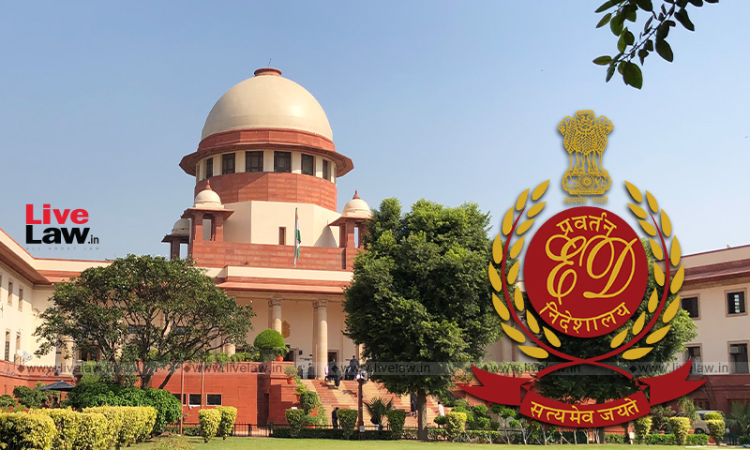Supreme Court Refuses To Entertain Plea Challenging Selection Process Of ED Director
Suraj Parmar
28 Aug 2023 9:57 PM IST

Next Story
28 Aug 2023 9:57 PM IST
The Supreme Court on August 25 refused to entertain a petition challenging the process of appointment of the Director of the Directorate of Enforcement (ED) and allowed the petition to be withdrawn.The bench comprising Justices BR Gavai, Justice PS Narsimha and Justice Prashant Kumar Mishra was hearing a PIL filed under Article 32 challenging the constitutionality of Section 25 of the...
